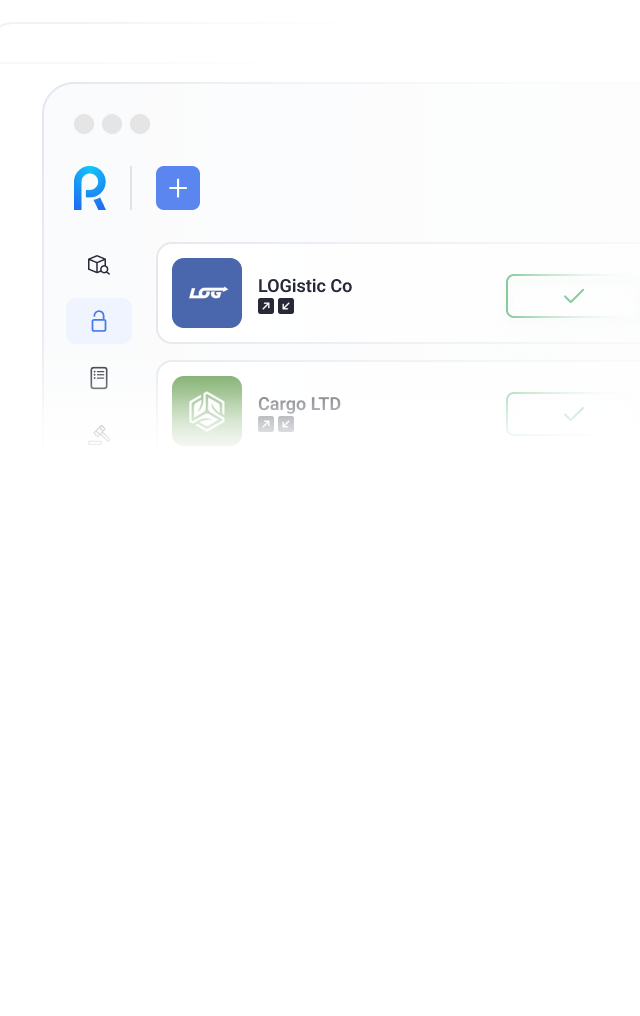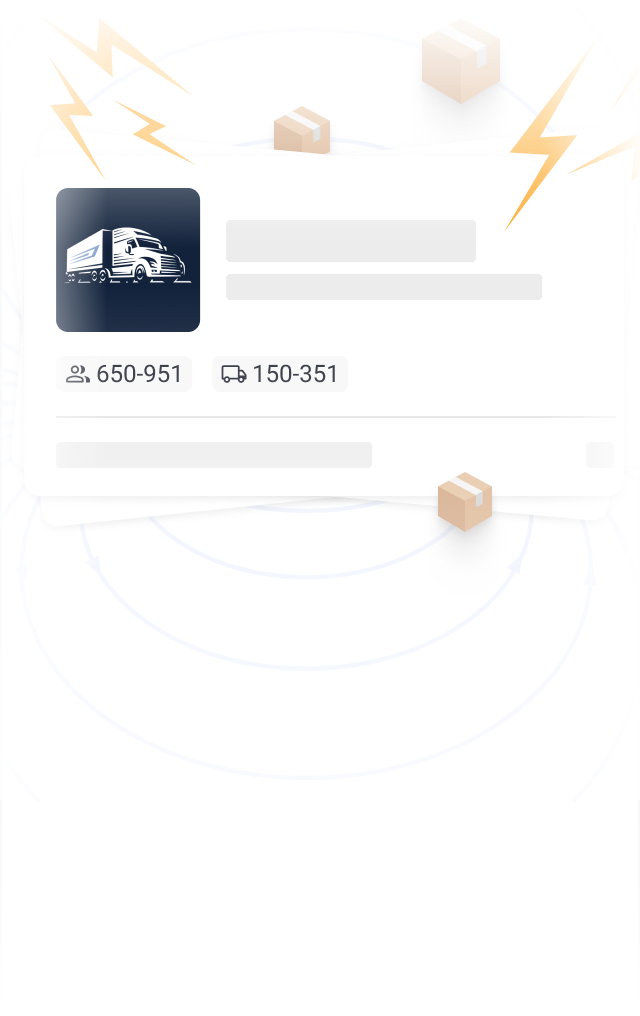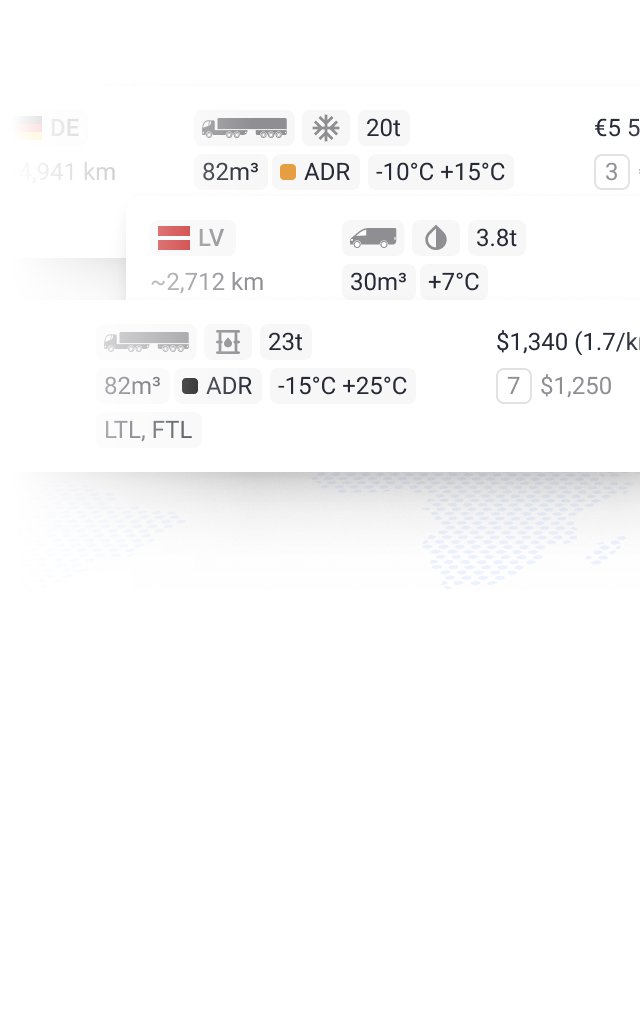
Find Shippers





















The cargo owner is the end customer of freight transportation. This can be either a legal entity (distributors, importers, manufacturers, logistics companies) or an individual. Literally, this is the person who owns, controls, and is responsible for the cargo.
Their main activity is not related to the logistics sector. They only organize the transportation itself by concluding a contract with a transport company.
The cargo owner's responsibilities include the following aspects:
- Preparing the cargo for shipment
- Compiling a package of necessary accompanying documents
- Creating conditions for the safe movement of cargo
- Payment for the services provided
Direct cargo owners are interested in the fast and safe delivery of cargo to the destination, but they do not necessarily act as the customer of the service. At the same time, the owner of the cargo for transportation may have the status of the consignor, consignee, or even act as a third party.
The concepts of "consignee," "consignor," and "owner" of the cargo are not identical. In this situation, the consignor may not only be the owner but also the seller, buyer, forwarder, or any other party involved in the transaction who is listed in the bill of lading. Identifying these participants is not as important as determining which of them is the customer of the service.
It makes sense to clarify this, as by contacting both the consignor and the consignee regarding this issue, you can acquire at least two potential clients for future collaboration. Even if the customer remains unknown due to commercial confidentiality, the contacts of cargo owners seeking carriers will become available.
Although dealing directly with cargo owners without intermediaries is more profitable, it is also more challenging. Eliminating the middleman requires taking on full responsibility, including legal aspects and resolving organizational issues.
To decide on this form of work, it is necessary to meet the following criteria:
- Have sufficient working capital, as profiting from a shipment is not a quick process.
- Possess adequate resources, including competent specialists, a vehicle fleet, technical equipment for transporting various types of cargo, and an electronic document management system.
- Have relevant experience and positive recommendations from major cargo owners with whom you have worked.
However, it is important to remember that direct cooperation without intermediaries is not always possible with all cargo owners, as it may sometimes conflict with their security policies.
There are specialized platforms where cargo owners can be found most easily and quickly. One of the most advanced and popular is Roolz. It offers six convenient search tools:
- Company directory
- Auctions and tenders
- Messenger
- Public offer
- Private exchange
- Company profile
- TMS, ERP, and CRM
Here, you can quickly and reliably find cargo owners from CIS countries, Asia, Europe, and China. Such a wide geographical coverage, a large number of offers, security, and an intuitive interface make this platform one of the most in-demand.
Direct cargo owners can also be found at specialized conferences and thematic exhibitions. Participants of such events are inherently focused on cooperation in this field.
Creating a database or list of shippers is not enough. For successful and mutually beneficial cooperation, it is necessary to properly prepare for concluding a contract and ensure objective opportunities for long-term fulfillment of obligations.
To achieve this, a number of steps must be taken:
- Organize documentation in both paper and electronic formats. This includes company charter documents, state registration certificates, tax reports, staffing schedules, and vehicle registration certificates.
- Develop clear tariffs, including pricing for additional services and their economic justification.
- Obtain an electronic signature from the manager and familiarize yourself with the operation of tender platforms and electronic document management services.
- Consider the technical details of transportation, including routes.
- Hire, either in-house or on an outsourced basis, a specialist who can handle client responsibilities in this area.
Thus, it is clear that cooperation with cargo owners without intermediaries is profitable and promising but requires competence and certain preparation. If these simple rules are neglected, instead of gaining benefits, you risk damaging your business reputation by failing to fulfill your obligations on time and with quality.
Who is a cargo owner?
The cargo owner is the end customer of freight transportation. This can be either a legal entity (distributors, importers, manufacturers, logistics companies) or an individual. Literally, this is the person who owns, controls, and is responsible for the cargo.
Their main activity is not related to the logistics sector. They only organize the transportation itself by concluding a contract with a transport company.
The cargo owner's responsibilities include the following aspects:
- Preparing the cargo for shipment
- Compiling a package of necessary accompanying documents
- Creating conditions for the safe movement of cargo
- Payment for the services provided
Direct cargo owners are interested in the fast and safe delivery of cargo to the destination, but they do not necessarily act as the customer of the service. At the same time, the owner of the cargo for transportation may have the status of the consignor, consignee, or even act as a third party.




Add your company


 en
en zh
zh fr
fr de
de hi
hi pl
pl es
es tr
tr uk
uk





















































